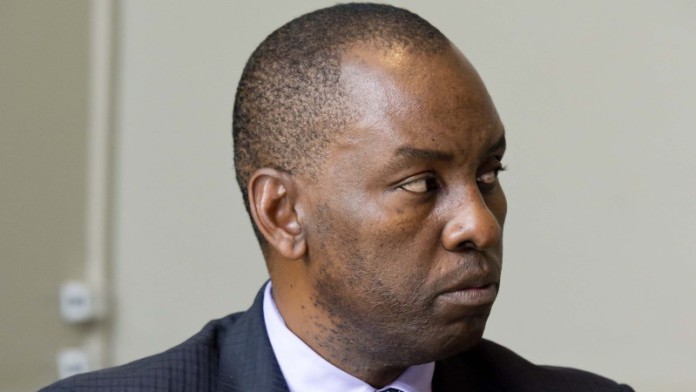
A NOTICE in the Government Gazette dated July 18, described by BusinessLive today as applying a freeze on new investment in South Africa, was “a last gasp” attempt by mines minister, Mosebenzi Zwane, to stamp his authority.
This is the interpretation of Brandon Irsigler of law consultancy, Strata Legal, who said the notice effectively stopped in their tracks new and existing applications for prospecting and mining licenses that had not been received and accepted by the DMR as at July 18, the date of the proclamation. The notice also prohibited a change in control of existing rights governed by the MPRDA.
“Interested and affected parties” have until August 4 to respond to the proposal and were directed to send their representations to the DMR deputy director-general, identified in the notice as Joel Raphela. Contacted by Miningmx, Raphela said he had “no knowledge” of the notice in the gazette.
The notice is the latest in a battle of wills between the minister and the mining industry following the publication on June 15 of the redrafted Mining Charter. The Chamber of Mines objected to the Mining Charter redraft on the basis that it set unrealistic targets related to transformation and which did not bear the input of the mining industry.
It subsequently successfully applied to interdict the Mining Charter, which had been published in the Government Gazette, forcing Zwane to suspend the implementation of the document pending a hearing. In return, Zwane’s Department of Mineral Resources (DMR) asked for two months grace so that it could respond to an interdict application.
It’s against this background that this latest notice should be interpreted which makes use of Section 49(1) of the Minerals & Petroleum Resources Development Act (MPRDA). The section gives the relevant mines minister authority to suspend new prospecting and mining licence applications.
According to Irsigler, the proper purpose of Section 49 in the MPRDA was most likely to allow the minister to intervene in practices that were deemed undesirable to the national interest. Hypothetically, such practices may include preventing investment in strategic minerals by undesirable multinationals, or ending practices of which the DMR disapproves such as the export of unbeneficiated ore, or the export of better quality materials, leaving poorer quality minerals for domestic consumers.
Zwane’s notice today read: “The intended restriction shall not be applicable to applications received and accepted before the date of publication of this notice, subject to the condition that such application, if granted, shall not immediately upon granting subject the right holder to the requirements of the Mining Charter 2017”.
That means mining and prospecting licenses already granted are not required to meet the strictures of the Mining Charter, such as 30% ownership empowerment. Licences not yet granted, new applications, and ‘new’ applications where there is a change in control from one mining company to another, however, are suspended – and across all commodities in all provinces of South Africa; in effect, nationally.
Irsigler contends, however, that Section 49 was never intended to stop business all transactions in the mining sector.
Another attorneys, Webber Wentzel, citing Section 49 of the MPRDA, said in a statement on Wednesday evening that: “It is difficult to understand how this radical step on the part of the minister may be justified as ‘… being in the “national interest” or “promot[ing] the sustainable development of the nation’s mineral resources'”.
The other effect in Section 49 is that it vests all powers to receive and grant various rights to the minister “on invitation” by minister. This prevents companies making applications in the ordinary course of business as is normal under the MPRDA’s other provisions, and may well allow “friends” to make applications which will be entertained, said Irsigler.
“We can only speculate as to the rationale of the minister, but it is difficult not to see this as an attempt to force the industry to ultimately bow to the minister’s whim in respect of Mining Charter III,” said Webber Wentzel in its statement.











